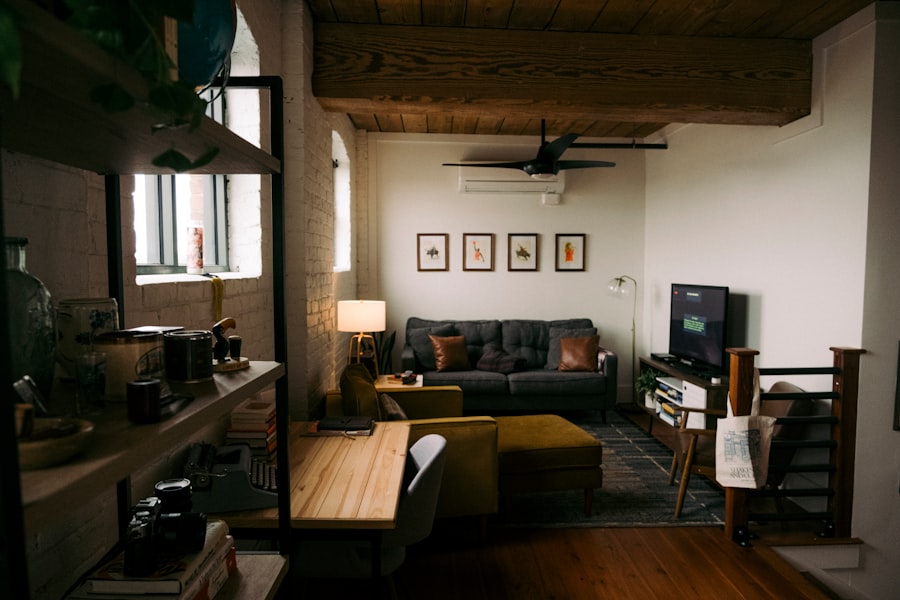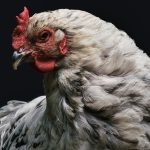Chickens have specific requirements for surviving cold weather, and understanding these needs is essential for maintaining the health and well-being of a flock during winter. Although chickens are generally hardy birds, they are vulnerable to cold temperatures without proper care and shelter. In cold conditions, chickens need a warm, dry environment to thrive, along with access to fresh water and food.
They also require protection from harsh winds and extreme temperatures. Chickens may need supplemental heating in their coop to maintain a comfortable temperature. Chicken owners should be aware of these requirements and take necessary measures to ensure their flock’s welfare during winter.
Chickens are more susceptible to cold weather than commonly believed. Despite having feathers for insulation, they can still suffer from frostbite and hypothermia without adequate shelter and protection from the elements. Chickens have a higher body temperature than humans, making them more sensitive to temperature changes.
In cold weather, chickens naturally fluff up their feathers to create an insulating layer of air around their bodies, but this may be insufficient in extreme conditions. It is important for chicken owners to recognize signs of cold stress in their flock, such as huddling together for warmth, decreased egg production, and lethargic behavior. By understanding the specific needs of chickens in cold weather, owners can take appropriate steps to ensure their flock remains healthy and comfortable during winter months.
Table of Contents
- 1 Providing proper shelter and insulation for chickens
- 2 Ensuring access to fresh water and food in cold temperatures
- 3 Implementing heating options for chicken coops
- 4 Monitoring chicken health and behavior in cold weather
- 5 Maintaining cleanliness and ventilation in the chicken coop during winter
- 6 Implementing additional measures for extreme cold weather conditions
- 7 FAQs
Key Takeaways
- Chickens need extra energy and warmth in cold weather to maintain their body temperature
- Proper shelter with insulation is essential to protect chickens from cold drafts and dampness
- Fresh water and food should be provided in a way that prevents freezing and spoilage
- Heating options such as heat lamps or heated perches can be used to keep the coop warm
- Regularly monitor chickens for signs of illness or distress in cold weather
- Cleanliness and ventilation are crucial to prevent moisture buildup and ammonia levels in the coop
- Additional measures like adding extra bedding or using windbreaks may be necessary in extreme cold weather conditions
Providing proper shelter and insulation for chickens
The Importance of a Well-Constructed Coop
A well-constructed coop is essential for protecting chickens from the elements and maintaining a comfortable environment. The coop should be insulated to retain heat and prevent drafts, but it should also be well-ventilated to prevent moisture buildup, which can lead to respiratory issues in chickens.
Key Features of a Chicken Coop
The coop should be raised off the ground to prevent dampness and provide a dry environment for the chickens. It’s also important to ensure that the coop is free from drafts and leaks, as these can make it difficult for chickens to stay warm in cold weather.
Comfortable Roosting and Nesting Areas
In addition to a well-insulated coop, chickens also require a dry and comfortable roosting area. Roosts should be made of wood or other materials that do not conduct cold, and they should be wide enough for chickens to comfortably perch on without their feet getting cold. Nesting boxes should also be insulated and filled with clean bedding to provide a warm and comfortable place for hens to lay their eggs.
Ensuring Comfort and Well-being
Providing proper shelter and insulation for chickens is essential for ensuring their comfort and well-being during the winter months. By following these guidelines, you can help keep your chickens happy and healthy throughout the cold weather.
Ensuring access to fresh water and food in cold temperatures

Access to fresh water and food is essential for chickens year-round, but it becomes especially important in cold temperatures. Chickens require a constant supply of fresh water to stay hydrated and maintain their body temperature. In cold weather, it’s important to prevent water from freezing by using heated waterers or regularly replacing frozen water with fresh, warm water.
Additionally, it’s important to ensure that waterers are placed in a sheltered area to prevent them from freezing as quickly. In addition to water, chickens also require a balanced diet of high-quality feed to maintain their energy levels and stay warm in cold weather. It’s important to provide chickens with a diet that is high in protein and energy to help them generate body heat.
Additionally, offering scratch grains or other treats can help keep chickens active and warm during the winter months. It’s also important to regularly check feeders and ensure that they are kept clean and free from mold or spoilage. By ensuring access to fresh water and food in cold temperatures, chicken owners can help their flock stay healthy and comfortable during the winter months.
Implementing heating options for chicken coops
In some cases, supplemental heating may be necessary to keep chicken coops at a comfortable temperature during the winter months. There are several heating options available for chicken coops, including heat lamps, radiant heaters, and heated pads. Heat lamps are a popular choice for providing warmth in chicken coops, but they should be used with caution to prevent fire hazards and burns.
Radiant heaters are another option for providing gentle warmth without the risk of fire, but they should be installed safely and kept away from flammable materials. Heated pads can also be used to provide warmth in specific areas of the coop, such as nesting boxes or roosts. When implementing heating options for chicken coops, it’s important to consider the specific needs of the flock and the layout of the coop.
Heating should be provided in a way that maintains a comfortable temperature without creating hot spots or causing excessive moisture buildup. Additionally, it’s important to regularly inspect heating equipment for signs of wear or damage and ensure that it is installed safely to prevent accidents. By implementing heating options for chicken coops, owners can help their flock stay warm and comfortable during the winter months.
Monitoring chicken health and behavior in cold weather
Monitoring chicken health and behavior is essential for identifying any issues that may arise during cold weather. In winter, chickens may be more susceptible to respiratory issues, frostbite, and other health problems if they are not provided with proper care and shelter. It’s important for chicken owners to regularly observe their flock for signs of illness or distress, such as coughing, sneezing, lethargy, or decreased appetite.
Additionally, it’s important to check chickens for signs of frostbite on their combs, wattles, and feet, as well as any signs of injury or discomfort. In addition to monitoring physical health, it’s also important to observe chicken behavior for any signs of stress or discomfort. Chickens that are cold or uncomfortable may huddle together for warmth, puff up their feathers, or exhibit lethargic behavior.
By monitoring chicken health and behavior in cold weather, owners can quickly identify any issues that may arise and take the necessary steps to address them. Regular observation and proactive care are essential for ensuring the well-being of chickens during the winter months.
Maintaining cleanliness and ventilation in the chicken coop during winter

Regular Cleaning is a Must
Regular cleaning of the coop is essential to prevent the buildup of moisture and respiratory issues. This involves removing soiled bedding, droppings, and any spilled feed from the coop. By doing so, you can provide a clean and comfortable environment for your chickens.
Proper Bedding and Ventilation
It’s also important to cover the coop floors with clean bedding to provide a dry and comfortable environment for your chickens. Proper ventilation is crucial for maintaining air quality and preventing moisture buildup in the coop. Ventilation openings should be positioned high up in the coop to allow for air circulation without creating drafts.
Regular Checks and Maintenance
Regular checks should be made to ensure that ventilation openings are not obstructed or blocked, and that they are functioning properly. By maintaining cleanliness and ventilation in the chicken coop during winter, owners can help prevent respiratory issues and create a healthy environment for their flock.
Implementing additional measures for extreme cold weather conditions
In extreme cold weather conditions, additional measures may be necessary to ensure the well-being of chickens. This may include providing extra insulation in the coop, using windbreaks or tarps to protect outdoor areas from harsh winds, or even temporarily relocating chickens to a warmer area if necessary. It’s important for chicken owners to closely monitor weather forecasts and be prepared to take action if extreme cold weather is expected.
In addition to providing extra insulation and protection from harsh winds, it’s also important to consider the specific needs of individual chickens during extreme cold weather conditions. Older birds or those with health issues may require extra care and attention to ensure their comfort and well-being. It’s important to regularly check on individual birds and provide any necessary support or accommodations as needed.
By implementing additional measures for extreme cold weather conditions, owners can help their flock stay safe and comfortable during periods of extreme cold. Being prepared and proactive is essential for ensuring the well-being of chickens in challenging weather conditions. In conclusion, caring for chickens in cold weather requires careful attention to their specific needs and proactive measures to ensure their comfort and well-being.
By understanding their needs, providing proper shelter and insulation, ensuring access to fresh water and food, implementing heating options when necessary, monitoring health and behavior, maintaining cleanliness and ventilation, and implementing additional measures for extreme cold weather conditions, chicken owners can help their flock thrive even during the coldest months of the year. With proper care and attention, chickens can remain healthy and comfortable throughout the winter season.
If you’re looking for tips on how to keep chickens in cold weather, you might also be interested in learning about the benefits of renting a chicken coop. Check out this article to find out how renting a coop can provide a warm and safe environment for your chickens during the winter months.
FAQs
What are the best chicken breeds for cold weather?
Some of the best chicken breeds for cold weather include the Plymouth Rock, Orpington, Wyandotte, and Rhode Island Red. These breeds have thick feathers and are well adapted to colder temperatures.
How can I keep my chickens warm in cold weather?
You can keep your chickens warm in cold weather by providing them with a well-insulated coop, using heat lamps or heated pads, and ensuring they have access to fresh water that doesn’t freeze.
What should I feed my chickens in cold weather?
In cold weather, it’s important to provide your chickens with a balanced diet that includes plenty of protein and carbohydrates. You can also supplement their diet with warm oatmeal or other cooked grains to help keep them warm.
How do I prevent frostbite in my chickens during cold weather?
To prevent frostbite in chickens during cold weather, make sure their coop is well-ventilated but not drafty, provide them with plenty of dry bedding, and check their combs and wattles regularly for signs of frostbite.
Do chickens need a heat lamp in cold weather?
While some chicken breeds may benefit from a heat lamp in extremely cold temperatures, most chickens are well adapted to cold weather and can keep themselves warm with their feathers and body heat. It’s important to monitor the temperature in the coop and provide additional heat only when necessary.
Meet Walter, the feathered-friend fanatic of Florida! Nestled in the sunshine state, Walter struts through life with his feathered companions, clucking his way to happiness. With a coop that’s fancier than a five-star hotel, he’s the Don Juan of the chicken world. When he’s not teaching his hens to do the cha-cha, you’ll find him in a heated debate with his prized rooster, Sir Clucks-a-Lot. Walter’s poultry passion is no yolk; he’s the sunny-side-up guy you never knew you needed in your flock of friends!







